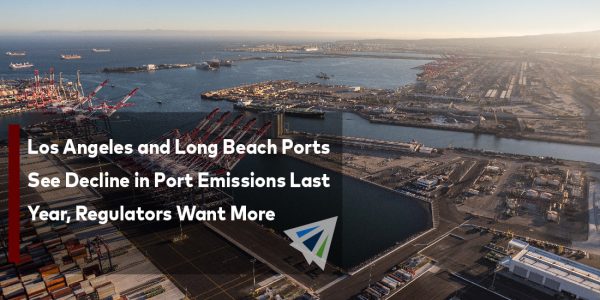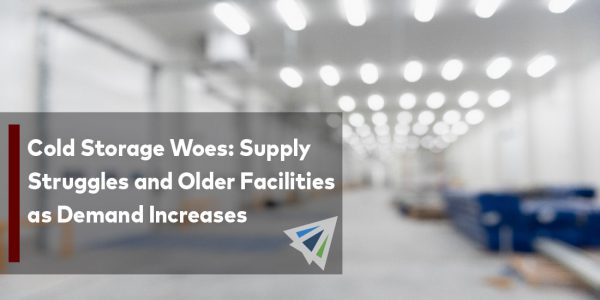Competitive Edge
September 27th, 2023
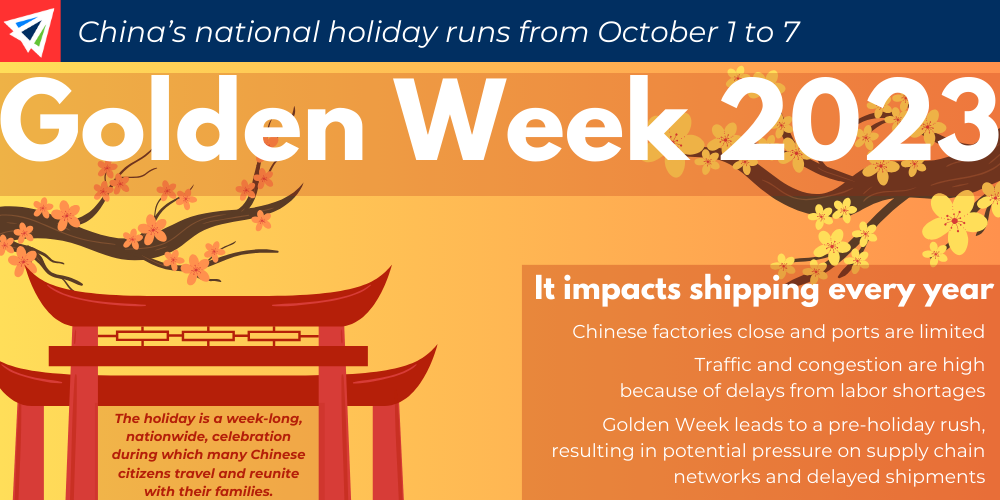
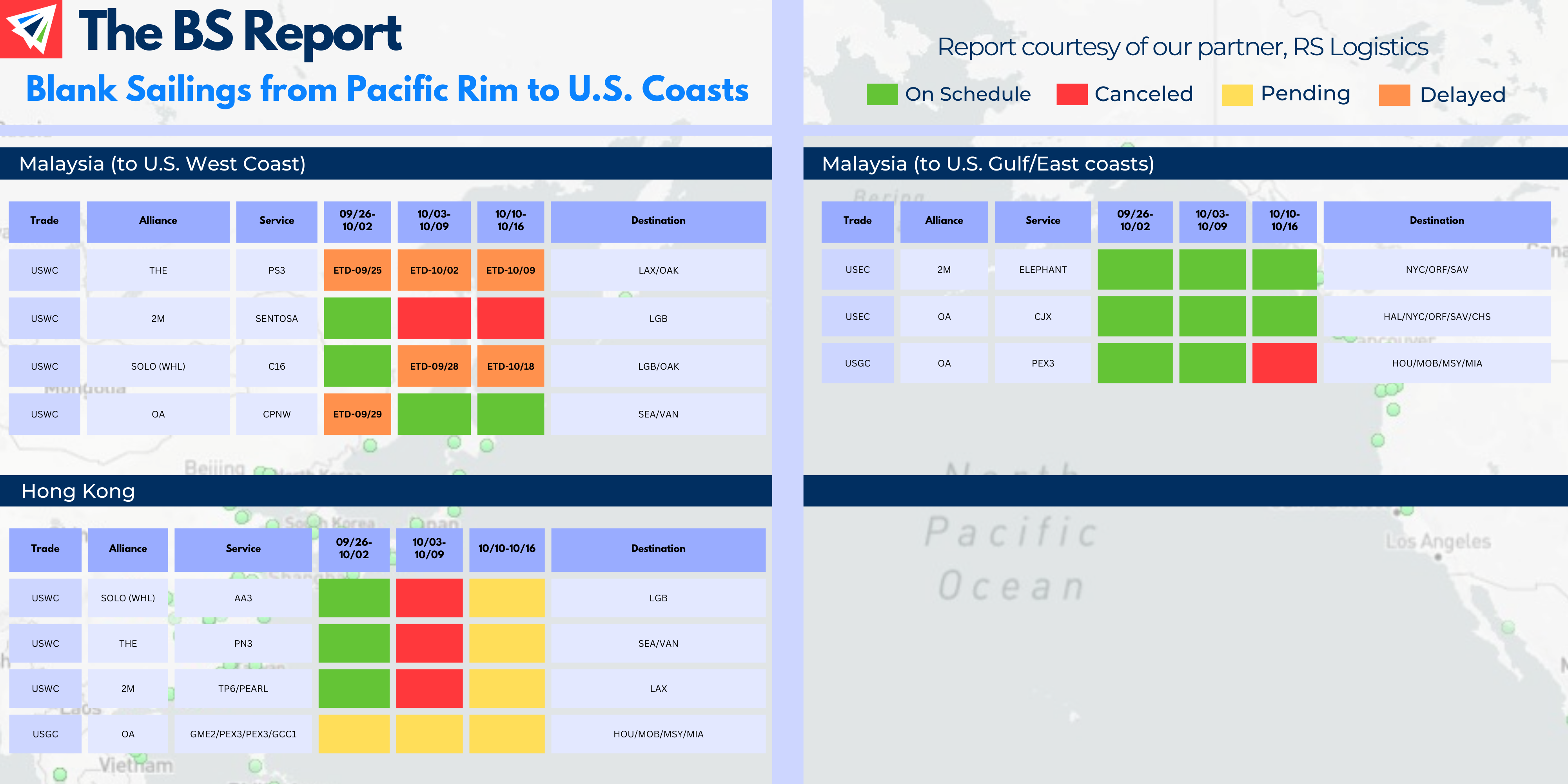
IMPORT: Asia to North America (TPEB)
Recent Developments:
- Golden Week begins October 1. A pre-holiday demand surge appears minimal, however schedule reliability remains a concern given occurrences of blank sailings.
- Both East and West coast ports recorded 20 percent (plus) year-over-year declines in transpacific imports for the first eight months of 2023.
Rates: Rates are steady, but above pre-pandemic levels and average contracts.
Space: Space is generally open, but certain services have seen tightening.
Capacity: Carriers remain reducing capacity with blank sailings.
Equipment: A new chassis pool at Southeast ports (excluding Charleston) will go live October 1.
TIPS:
- Hold your logistics partners accountable for frequent updates regarding blank sailings, rate increases, or any other forms of carrier maintenance.
- Establish a firm timeline for future import activity.
IMPORT: Europe to North America (TAWB)
Rates: Rates mirror pre-pandemic levels.
Space: Space is open, except for a few pockets.
Capacity: Major carriers are reallocating TAWB vessel capacity to the Asia-Europe trade.
Equipment: Availability on both origin and destination sides, unless advised otherwise.
TIPS:
- Book at least three weeks prior to the ready date.
- It’s unclear yet how carriers will react to this trade’s softened state, but be on the lookout for certain tactics, like blank sailings or rate increases, from them as a means to reduce lossmaking.
EXPORT: North America to Asia
Recent Developments:
- Increased competition from other exporting countries, like Brazil, have made it more difficult for American farmers to reach overseas markets.
- The U.S. harvest season could see adverse impacts as low water levels on the Mississippi River hinder barge movement, a popular mode for agriculture exports.
Rates: Rates have increased at a sharp clip.
Capacity: Schedule reliability is currently erratic.
Equipment: Availability at virtually all inland points and seaports. However, chassis access remains a wildcard against fluid intermodal movement.
TIPS:
- Insufficient communication with erratic sailing schedules can lead to higher detention and demurrage fees as well as higher trucking and storage costs. Ensure your logistics partners are not keeping you and your cargo in the dark.
Watch Our September Webinar!
Topics: U.S. – Vietnam trade relations, loan interest rates, and the future outlook/buying patterns.
Sign Up For Our October Webinar!
Our next webinar is on Wednesday, October 18th, at 10am CST!
We will be announcing topics shortly, so keep an eye out for those.
What is Coffee & Cargo? Every month, our experts sit down to discuss what’s currently happening in the shipping industry. Every so often we are joined by special guests, who share their specific expertise and experiences.
Freight News
FMC is Taking on an “Unprecedented” Amount of Caseload Activity
Since the pandemic, the Federal Maritime Commission (FMC) has seen an “unprecedented” amount of small claim cases and formal complaints.
Small claims more than doubled in the fiscal year 2022 the FMC reports. While formal proceedings submitted to the FMC more than tripled in fiscal year 2022, compared to fiscal year 2019.
As the JOC notes – formal complaints, similar to lawsuits, are initiated when one party alleges another violated U.S. shipping statutes under the FMC’s authority and a legal proceeding takes place before one of the three FMC’s administrative law judges.
One of the bigger cases that the FMC handled was the Hapag-Lloyd’s $2 million civil penalty in June 2022, “to address alleged violations related to their detention and demurrage practices.”
Additionally, back in April of this year, Bed Bath & Beyond filed a formal complaint seeking $30+ million in damages from OOCL, alleging OOCL price gouged during the peak of the pandemic. As well as $6 million from Yang Ming, alleging they refused cargo throughout a six-month period.
Some say this increase, in claims activity for the FMC, will continue.
More Investments/Services Being Added in the South American Region as Trade Increases
Supply chain stakeholders are investing more into the South American region to an effort to capitalize the increase in trade volumes and different sourcing shifts for diversifying supply chains.
“Latin America’s distinct advantages lie in its strategic combination of geographical proximity, strong partnerships with developed economies and the maturity required to deliver high-quality services,” Tobias Bartz CEO and Chairman of the Rhenus Group told the JOC in an interview, regarding these investments into the region.
APM Terminals is investing $500 million into a new terminal in Suape, Brazil, and is committing another $700 million to four other terminals and inland depots in the region. Additionally, Cosco Shipping Lines, ONE, and OOCL are also getting involved in this latest trade.
However, it is important to note that the lack of an efficient infrastructure (compared to say, some European and Asian ports), can also pose some challenges in seeing exponential growth in that South America region.
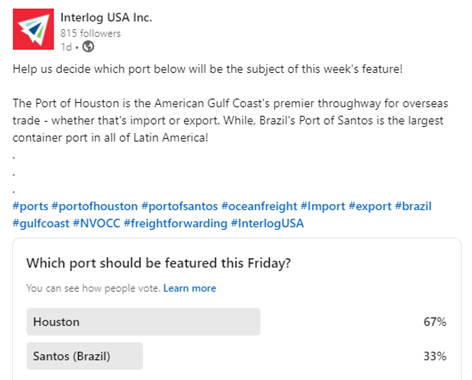
Vote in This Week's 'Port of the Week' Poll
Every other week we post a poll on our LinkedIn page (give us a follow if you feel inclined 😊 ), where you can vote on which port you would like to see featured in our deep dive this Friday!
Vote on this week’s port poll battle: Port of Santos vs. Port of Houston
Consider subscribing to our biweekly “Port of the Week!” newsletter to continue getting a closer look at various ports (and inland ports), globally and domestically.
Fun Facts About the Two Port of the Week Candidates!
Port of Santos: Did you know this port is the nation’s busiest port AND the largest coffee-shipping port in the world?
Port of Houston: Did you know this port is one of the busiest seaports in the world for inland barge traffic?
Make sure you cast your vote on which port should be highlighted in our LinkedIn newsletter!
Interlog  Insights
Insights
In week three of our September Insights, we discussed the top five U.S. consumer spending events (2019-2023).
We also provided our thoughts on nuclear power as another green alternative, that is gaining attention in the maritime industry.
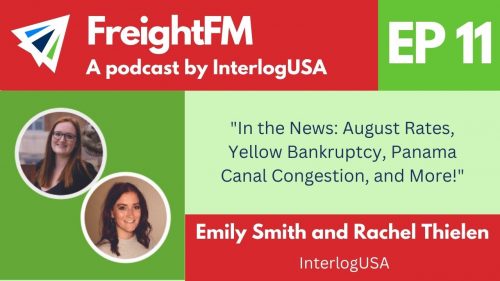
A Podcast by InterlogUSA: NEW FreightFM Episode 11
Check out episode 11 – In the News: August Rates, Yellow Corp Bankruptcy, Panama Canal Congestion, and More!
InterlogUSA’s Rachel Thielen and Emily Smith discuss the latest industry news during the episode.
FreightFM features short-form video interviews with InterlogUSA’s industry experts offering insights into breaking news, market trends, our company’s history, and more!
Sign up for our
industry answers
Our team works to provide valuable, unique, and relevant content to assist you in finding solutions. Sign up now.
